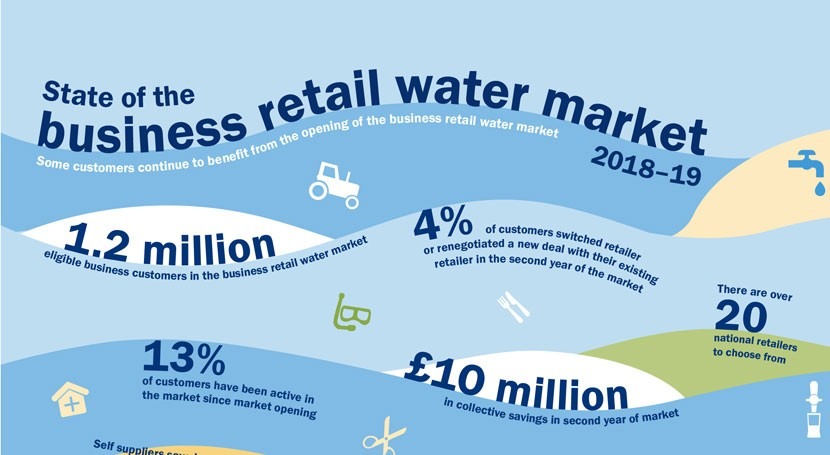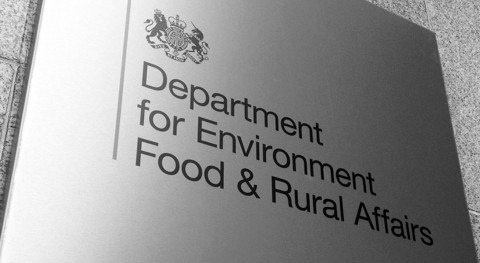Customers have saved around £10 million in the second year of the market but urgent action is required to get the market working effectively and unlock better outcomes for more customers; according to a new report reviewing the second year of the business retail market from water regulator Ofwat.
The report highlights that progress made by the sector to resolve a number of market frictions in year two has been disappointing. These frictions – which include poor aggregate wholesaler performance, poor quality customer and consumption data, and some inefficient wholesaler-retailer interactions – undermine the overall effectiveness of the market and its ability to deliver improved customer outcomes.
Around 13% of eligible customers in England have been active in the market since it opened in April 2017; with those switching or renegotiating making financial savings of around £10 million during the second year. Some customers have benefitted from increased water efficiency, for example three self-supply licensees reportedly saved around 150 million litres of water between them in 2018.
Alongside its assessment of the second year of the market, Ofwat has also announced decisions following its review of the Retail Exit Code (REC); to continue to protect the interests of customers and promote effective competition where appropriate.
Lower usage customers, who are currently much less likely to engage in or benefit from the market, will see retained price protections that will apply from April 2020, while higher usage customers will see price protections retained but relaxed as they are more engaged and more able to benefit from the market. In addition, Ofwat has taken steps to strengthen protection for customers against non-voluntary changes in their non-price terms. Ofwat intends to revisit the price protections in two to three years.
Emma Kelso Senior Director Markets and Enforcement at Ofwat, said:
“Resolving the market frictions is vital to maintain the momentum of the business retail market and to get it to deliver better outcomes for customers; but it will require all market participants to step up and work collaboratively."
“Our decisions reflect the fact that the market is still developing. We want to see more customers benefitting from an effective and vigorous business retail market but we also want to ensure those businesses that for now are less able to engage, are not exploited."
“Despite some good progress from some of the industry players, the sector needs to take urgent action to resolve market frictions swiftly in the third year of operation.”



















